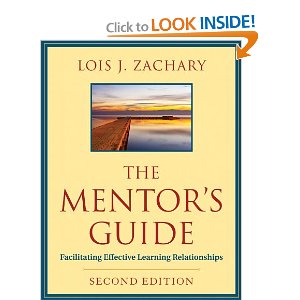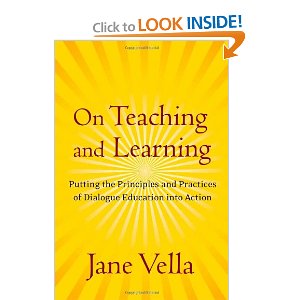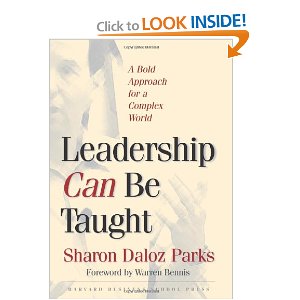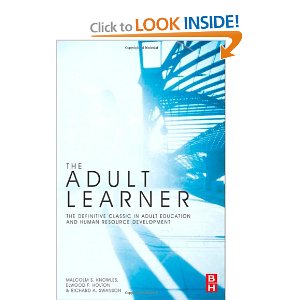Here is a stellar infographic on how universities are using technology.
These are the 10 winning projects in five categories who won the 2012 Innovators Awards from CampusTechnology.com
[Read more…] about How Universities are using Technology
Pastor + Author
By Daniel Im
Here is a stellar infographic on how universities are using technology.
These are the 10 winning projects in five categories who won the 2012 Innovators Awards from CampusTechnology.com
[Read more…] about How Universities are using Technology
By Daniel Im
 Lois Zachary does not only set out the basic principles and best practices of mentoring in The Mentor’s Guide, she actually goes a step further and helps readers discover their own personal mentoring style and preferences.
Lois Zachary does not only set out the basic principles and best practices of mentoring in The Mentor’s Guide, she actually goes a step further and helps readers discover their own personal mentoring style and preferences.
Through many exercises, she guides the reader through introspection and action. Thus, she not only conceptually ties mentoring to adult education, but she actually writes in a manner according to the principles of adult education.
Consequently, she challenges the prevailing myths of mentoring, and proposes a model of mentoring where both mentor and mentee are fully engaged and learning from one another. Her proposed model is one that is based on critical reflection and application, rather than knowledge transfer and acquisition (Location 300).
[Read more…] about Book Review: The Mentor’s Guide – Zachary
By Daniel Im
 Jane Vella’s On Teaching and Learning is a magnificent follow-up book to the principles of dialogue education she laid out in Learning to Listen, Learning to Teach (2002).
Jane Vella’s On Teaching and Learning is a magnificent follow-up book to the principles of dialogue education she laid out in Learning to Listen, Learning to Teach (2002).
In this book, Vella takes the principles of dialogue education and shows what it looks like to put them into action through both the traditional face-to-face educational setting and also in an online setting.
Dialogue education is not merely a pedagogy; it is more importantly a way to make society a place of peace (xix). Thus, teaching with dialogue education involves listening to learners, empowering them, and respecting them (xix). Consequently, the following statement appropriately sums up the necessary subconscious of dialogue educators – “the dialogue is not a dialogue between teachers and learner, but among learners, of whom the teacher is one” (xxi). [Read more…] about Book Review: On Teaching and Learning – Vella
By Daniel Im
 Sharon Daloz Parks’ Leadership Can Be Taught is an examination and illumination of Ronald Heifetz’s teaching method at Harvard’s Kennedy School of Government.
Sharon Daloz Parks’ Leadership Can Be Taught is an examination and illumination of Ronald Heifetz’s teaching method at Harvard’s Kennedy School of Government.
She not only gives the reader an in depth experience of being in Heifetz’s classroom, but she also translates his methodology into transferrable principles for leadership and teaching. She does this by dissecting the case-in-point approach that Heifetz uses. She also dismantles the notion that an individual is born a leader, and plots a way to develop presence – “the ability to intervene, to hold steady, inspire a group, and work in both verbal and nonverbal realms” (13).
In the second half of the book, Parks addresses the transferability of this approach to a variety of different situations, such as the workplace or different classroom settings. She then places herself in the shoes of a teacher, and examines the principles that teachers need to learn in order to teach with this methodology. The book closes with a critique on our culture’s myth of leadership and an evaluation of this method’s strengths and limits.
In a sense, Leadership Can Be Taught is a hybrid-workbook or pathway to help leaders, teachers, and organizations rethink leadership, teaching, and how to learn. [Read more…] about Book Review: Leadership Can Be Taught – Parks
By Daniel Im
 Knowles’, Holton’s, and Swanson’s The Adult Learner serves as a comprehensive overview of the field of adult education.
Knowles’, Holton’s, and Swanson’s The Adult Learner serves as a comprehensive overview of the field of adult education.
Andragogy, in contrast to pedagogy, is a field that focuses on adult learning and everything that ensues. It is “any intentional and professionally guided activity that aims at a change in adult persons” (Location 1174). It does not merely translate pedagogical principles to an adult context, but it is an attempt to focus on the adult learner and “provide an alternative to the methodology-centered instructional design perspective” (Location 124).
This book proposes and argues for six principles of andragogy: the learner’s need to know, the self-concept of the learner, the prior experience of the learner, the readiness to learn, the orientation to learning, and the motivation to learn (Location 155). These core principles are set in the context of individual and situational differences, which are subject matter differences, individual learner differences, and situational differences. This is then set in the context of the broader goals and purposes for learning, which are institutional growth, individual growth, and societal growth (Location 164).
[Read more…] about Book Review: The Adult Learner – Knowles